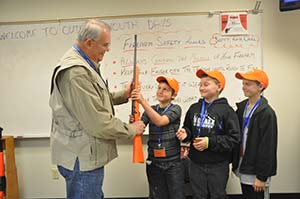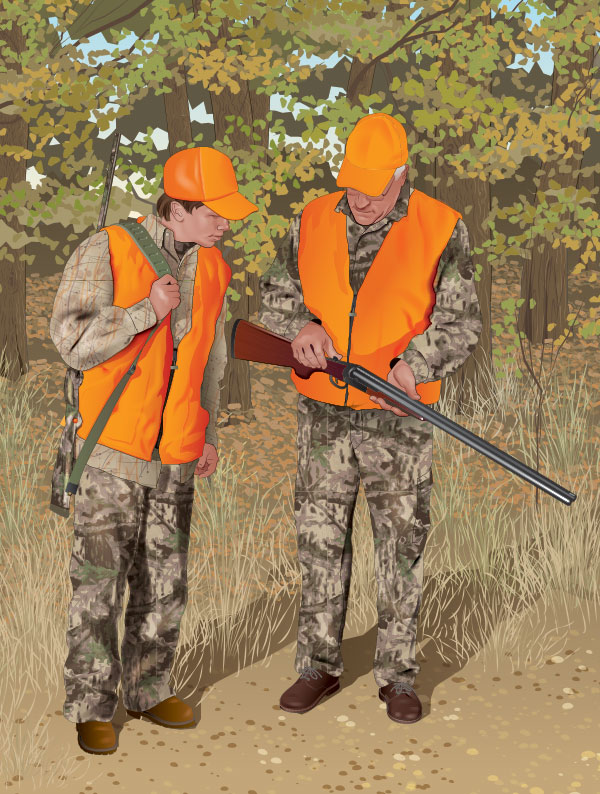Hunter education is important for multiple reasons. It promotes safety, ethical hunting practices, and conservation efforts.
The Impact Of Hunter Education On Safety
Hunter education plays a vital role in ensuring the safety of hunters and those around them. 🦄 By reducing hunting accidents, this education equips hunters with the necessary knowledge and skills to handle firearms safely. Through comprehensive training programs, hunters learn the importance of following firearm safety rules, such as keeping their finger off the trigger until ready to shoot and treating every firearm as if it is loaded. This promotes safe firearm handling practices and helps prevent accidental shootings. Furthermore, hunter education enhances awareness of potential hazards in the hunting environment. Hunters are educated on identifying and avoiding dangerous situations, such as trespassing on private property or mistakenly targeting protected species. This knowledge empowers hunters to make informed decisions that prioritize safety for themselves and others while participating in their passion for hunting. 🎣

Credit: www.adfg.alaska.gov
Conservation Benefits Of Hunter Education
Understanding ecosystems and wildlife populations is one of the key conservation benefits of hunter education. Through education and training, hunters gain knowledge about the delicate balance of ecosystems and the impacts that hunting can have on wildlife populations. They learn about the importance of sustainable hunting practices, such as proper game management and the significance of bag limits. This ensures that hunting activities do not disrupt the natural balance of species and their habitats.
Another important aspect of hunter education is promoting ethical hunting practices. Hunters are encouraged to follow a strict code of conduct, which includes respecting both the animals being hunted and the environment. They learn about the importance of fair chase, which emphasizes giving animals a fair opportunity to escape, and they are taught proper hunting techniques to minimize suffering and ensure quick, humane kills.
Furthermore, hunter education plays a crucial role in protecting habitats and preserving species diversity. Hunters are educated about the importance of conserving natural areas and the role habitats play in supporting wildlife populations. They learn about habitat loss and the impacts of human activities on ecosystems. By understanding these factors, hunters become advocates for habitat conservation and work towards preserving the biodiversity of the areas they hunt in.
Building A Responsible Hunting Community
Building a responsible hunting community is essential for the long-term sustainability of hunting and wildlife conservation. One of the key ways to achieve this is by encouraging ethical behavior and sportsmanship among hunters. By emphasizing the importance of fair chase, ethical shot placement, and the responsible use of hunting equipment, we can ensure that hunters are not only successful but also respectful towards wildlife.
Fostering respect for wildlife and landowners is another crucial aspect of creating a responsible hunting community. Hunters should understand the importance of treating wildlife with care and compassion, and should always seek permission from landowners before entering their property. This helps to maintain positive relationships with landowners and promotes responsible land management practices.
| Promoting wildlife conservation through funding and volunteer efforts |
| Another vital component of building a responsible hunting community is the promotion of wildlife conservation. By purchasing hunting licenses and tags, hunters contribute funds directly to wildlife conservation efforts. Additionally, many hunters volunteer their time and resources for habitat restoration projects, wildlife research, and public education initiatives. These collective efforts help sustain healthy populations of game species and protect the natural habitats they rely on. |
Conclusion
Hunter education is crucial for numerous reasons. It enhances safety by teaching individuals about responsible hunting practices and how to handle firearms properly. Moreover, it promotes ethical hunting by fostering respect for wildlife conservation and habitat preservation. With the knowledge gained through hunter education, individuals become more skilled hunters, ensuring sustainable hunting practices for generations to come.
So, if you are considering pursuing hunting as a passion, taking a hunter education course would be a wise choice.







